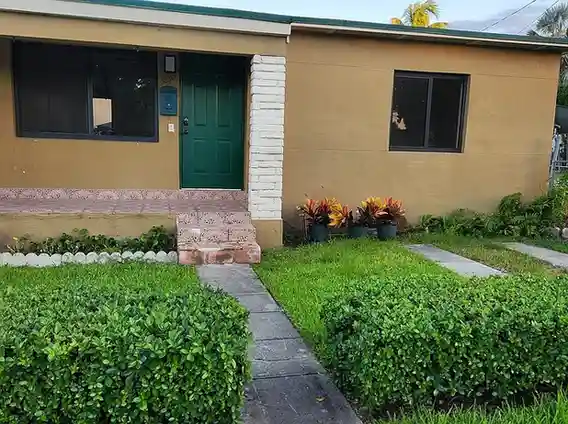Changing the zoning of a property can open doors for development, new uses, or increased property value—but it doesn’t come cheap or easy. If you’ve ever wondered how much does it cost to rezone a property, the answer is: it depends. Zoning laws vary by city and county, and so do the fees, timelines, and legal complexities. Cost of rezoning property are as under…
As a real estate agent or landowner, it’s crucial to understand the full picture before jumping into the rezoning process. Below, we break down the costs, steps, and factors that influence how much you’ll pay—and what to expect when you apply for a zoning change.
—
What Is Rezoning?
Rezoning means changing how a piece of land is legally allowed to be used, according to the municipal zoning code. Common rezoning changes include converting residential land into commercial, changing from agricultural to residential, or increasing allowable density for multifamily housing.
Before any changes are made to how land is developed or used, local planning departments must approve the rezoning request, which involves legal reviews, hearings, and sometimes community input.
—
Typical Rezoning Costs
Let’s get to the big question: how much does it cost to rezone a property?
Here’s a breakdown of typical rezoning costs in the U.S.:
- City or County Filing Fees: $500 – $5,000+
- Legal or Land Use Consultant Fees: $2,000 – $10,000+
- Environmental or Traffic Studies (if required): $1,000 – $25,000+
- Public Notification and Signage: $100 – $500
- Hearing Preparation and Surveyor/Architect Fees: $1,000 – $7,500
On average, small municipalities may charge as little as $500 to $1,500 in application fees. In large cities like Los Angeles, Houston, or Miami, rezoning fees can reach well over $10,000 depending on the scope and land size.
—
Factors That Affect Rezoning Cost
The cost to rezone a property can fluctuate dramatically based on several key factors:
- Location: Rezoning fees are set by each local government. Urban areas tend to be more expensive than rural zones.
- Size of the Property: Larger properties often require more extensive analysis and may face higher scrutiny.
- Zoning Category Requested: Changing from low-density residential to industrial use involves more complex approvals than minor adjustments.
- Public Opposition: If the proposed change is controversial, you may need extra legal or lobbying support.
- Required Studies: Environmental impact reports, floodplain analysis, or traffic studies can quickly drive up the budget.
Understanding these factors helps you estimate the real costs—not just the filing fee.
—
Professional Fees: Don’t Overlook This Line Item
Many landowners are surprised that city fees aren’t the most expensive part of the rezoning process. Professional assistance from land-use attorneys, surveyors, engineers, and planners can easily double or triple your costs.
For example, hiring a zoning attorney can cost between $200 and $500 per hour. If you’re facing opposition or need help preparing for a public hearing, their guidance is essential.
—
Time Is Money: How Long Does Rezoning Take?
While this article is about costs, don’t forget the time investment. Rezoning can take anywhere from three months to over a year.
The longer it takes:
- The more you’ll spend on consultant hours
- The longer your property sits idle or undeveloped
- The greater your carrying costs (taxes, insurance, maintenance)
Delays may also result in repeat application fees if deadlines or conditions aren’t met.
—
Are Rezoning Costs Worth It?
Rezoning is an investment—not just an expense. Changing your property’s zoning can dramatically increase its value or enable a more profitable use. For example:
- A lot rezoned from single-family to duplex may double in income potential.
- A property shifted from residential to commercial could become the site of a retail store or office building.
- A rezoned parcel in a growth corridor could become a target for developers.
Before you commit, evaluate your return on investment. Sometimes, the upfront cost of rezoning is well worth the long-term gains.
—
Alternatives to Full Rezoning
Not ready to go all-in on a zoning change? There are other routes to consider:
- Zoning Variance: A less expensive alternative that allows a specific exception without changing the base zoning.
- Conditional Use Permit (CUP): Grants limited use approval for certain activities within a zone.
- Overlay Zones: Some cities offer flexible zoning overlays for historic, environmental, or redevelopment areas.
These options can save money and time while still achieving your development goals.
—
Final Thoughts: Budget Wisely and Plan Ahead
So, how much does it cost to rezone a property? It could be as little as $1,000 or as much as $30,000+, depending on your location, property type, and goals. What matters most is being prepared.
Here’s how to stay ahead:
- Research your local zoning code and fee schedules
- Hire an experienced zoning consultant or attorney
- Engage with your local planning department early
- Budget beyond the application fee—plan for legal, engineering, and hearing costs
Whether you’re an investor, homeowner, or developer, rezoning can be a powerful tool. But like all real estate moves, success lies in smart planning and knowing the full cost before you begin.
